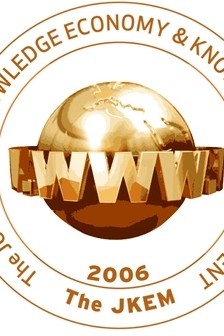THE MEASUREMENT MODEL OF SOCIAL RESPONSIBILITY CONSTRUCT FROM AN ISLAMIC PERSPECTIVE: EMPIRICAL ANALYSIS OF MALAYSIAN BUSINESS ORGANIZATIONS
Islamic management
THE MEASUREMENT MODEL OF SOCIAL RESPONSIBILITY CONSTRUCT FROM AN ISLAMIC PERSPECTIVE: EMPIRICAL ANALYSIS OF MALAYSIAN BUSINESS ORGANIZATIONS
___
- Al-Attas, S. M. (2001). Prolegomena: To the metaphysics of Islam. An exposition of the fundamental elements of the worldview of Islam. Kuala Lumpur: International Institute of Islamic Thought and Civilization.
- Al-Amar, F. K. (2008). Intellectual characteristics of Muslim personality and job characteristics as determinants for organizational citizenship behavior among Yemeni secondary school teachers in Sanaa. Unpublished doctoral dissertation, International Islamic University Malaysia, Kuala Lumpur, Malaysia.
- Al-Hilali, M. T. & Khan, M. M. (1996). The Noble Qur’an: English Translation of the Meanings and Commentary. King Fahd Complex for the Printing of the Holy Qur’an, Madina.
- Al-Khazindar, Mhmud Muhammad (1999). Hadhihi ‘akhlaquna win nakun mu’minin [This is our ethics when we are believers]. Al-Ryath: Dar tybah li nashir wa tawzic.
- Alexander, S., & Ruderman, M. (1987). The role of procedural and distributive justice in organizational behavior, Social Justice Research, 1, 177-198.
- Ali, A. J. (2005). Islamic perspective on management and organization, Edward Elgar Publishing Limited.
- Ahmad, K. (2008). Management from Islamic perspective: principles and practices. Kuala Lumpur: IIUM Press.
- Beekun, R. I., & Badawi, J. (2004). Leadership: an Islamic perspective. Maryland: Amana Publications.
- Byrne, B. M. (2010). Structural equation modelling with AMOS; basic concepts, applications and programming. New York: Taylor and Francis Group, LLC.
- Davey, A., & Savla, J. (2010). Statistical power analysis with missing data: a structural equation modeling approach. New York: Routledge Taylor & Francis Group.
- Gay, L. R., & Airasian, P. (2000). Educational research competencies for analysis and application (11th ed.). Upper Saddle River: Prentice-Hall International, Inc.
- Habil, A. (1989). Traditional esoteric commentaries on the Qur’an. London: The Crossroad Publishing Company.
- Habnakah, al Maydani Abd al-Rahman Hasan (1996). Al-akhlāq al-Islāmiyyah wa ususuha [Islamic ethics and its foundations] (4th ed., Vol. 1]. Dimshiq: Dar al-Qalam.
- Hair, J. F., Black, W. C., Babin, B. J., Anderson, R. E., & Tatham R. L. (2010). Multivariate data analaysis. New Jersey: Pierson Hall.
- Hallaq, W. (2004). A History of Islamic legal theories: An introduction to Sunni Usul al-Fiqh. Cambridge: Cambridge Universit Press.
- Hashim, J. (2009). Islamic revival in human resource management practices among selected Islamic organizations in Malaysia, International Journal of Islamic and Middle Eastern Finance and Management, (2)3, 251-267.
- Hawa, S. (2004). Tarbiyatina al-ruhiyya [Our spiritual training]. Cairo: Dar-Alsalam.
- Ibn Kather Al-Qurashi Al-damashqi, A. I., (1999). Tafsir Al-Qur’an Al-kareem. Darul Taibati Printing Press: Madina.
- Kamil, N. M. (2012). Organizational citizenship behavior from Islamic perspective and the role of Taqwa: Empirical analysis of business organizations in Malaysia. Unpublished doctoral dissertation, International Islamic University Malaysia, Kuala Lumpur, Malaysia.
- Kamil, N. M., Sulaiman, M., Osman-Gani, A., & Ahmad, K. (2010). Implications of Piety (Taqwa) on Organizational Citizenship Behavior (OCB) from Islamic Perspective: A study of Professionals in Southeast Asia. A paper presented at the 9th International Conference of the Academy of HRD (Asia Chapter) (pp. 166-181). Shanghai, 2010: Academy of Human Resource Development, Institute of vocational and adult education, East China Normal University, China.
- Kamil. N. M., & Sulaiman, M. Osman_Gani, A. M., & Ahmad, K. (2011). Effects of Spirituality and Social Responsibility on Job Performance: A conceptual analysis from religious perspectives. A paper presented at the AHRD International Research Conference in the Americas. Chicago, February 2011: Academy of Human Resource Development.
- Kamil, N. M., Al-Kahtani, A. H., & Sulaiman, M. (2011). The components of spirituality in the business organizational context: The case of Malaysia, Asian Journal of Business and Management Sciences, 1(2), 166-180.
- Kaya, M. (2009). The final devine religion; Islam. Instabul: Erkam Publications.
- Kazmi, A. (2004). A Preliminary Enquiry into the Paradigmatic Differences among the Conventional and Islamic Approaches to Management Studies. Unpublished Paper, Malaysia: IIUM.
- Kettani, H. (2010). 2010 World Muslim Population. Proceedings of the 8th Hawaii International Conference on Arts and Humanities, Honolulu, Hawaii, January 2010, (pp. 1-61). Hawaii.
- Khalid, S., & Ali, H. (2005). The Effect of organizational citizenship behavior on withdrawal behavior: A Malaysian Study, International Journal of Management and Entrepreneurship, 1(1), 30-40.
- Kline, R. B. (2011). Principles and practices of structural equation modeling (3ed.). New York: The Guilford Press.
- Kouzes, J. M., & Posner, B. Z. (2002). Leadership the Challenge (3rd ed). San Francisco: Jossey-Bass.
- Mohsen, N. R. M. (2007). Leadership from the Qur’an, operationalization of concepts and empirical analysis: relationship between Taqwa, trust and business leadership effectiveness. Unpublished doctoral dissertation, Universiti Sains Malaysia, Kuala Lumpur, Malaysia.
- Sekaran, U., & Bougie, R. (2010). Research methods for business: a skill-building approach (5th ed). Haddington: John Wiley & Sons.
- Tayeb, M. (1997). Islamic revival in Asia and human resource management”, Employee Relation, 19(4), 352-64.
- Yayın Aralığı: Yılda 2 Sayı
- Başlangıç: 2006
- Yayıncı: İbrahim Güran YUMUŞAK
Pedro FERREİRA, Elizabeth Real De OLİVEİRA
THE COMPARISON OF TWO STRATEGIC ALLIANCES IN TERMS OF ORGANIZATIONAL LEARNING AND KNOWLEDGE TRANSFER
Nurullah Genç – N. Öykü İYİGÜN, Nurullah Genç
Nor Azila Mohd NOOR, Selvan PERUMAL, Zolkafli HUSSİN
GÜNEY KORE’NİN İNOVASYON AKTÖRLERİ: ÜNİVERSİTE, SANAYİ VE KAMU ARAŞTIRMA MERKEZLERİNİN ANALİZİ
Derya Ergün Özler – Nuray Mercan – Yaşar ALTINAY, Derya Ergün Özler, Nuray Mercan, Yaşar Aksanyar, Ayşenur Altınay
A. Kadir Bin Othman – M. Khirzan Badzli RAHMAN, Abdul Kadir bin Othman, Ariff Md Abdul MALİK, Mohd Khirzan Badzli Abdul Rahman, Samsudin WAHAB
THE RELATIONSHIP BETWEEN KNOWLEDGE SHARING AND NEGATIVE ATTITUDE AGAINST EMPLOYEE MONITORING
Cihan Tınaztepe – Funda Özer– Mehmet Kız YOZGAT, Cihan Tinaztepe, Funda Özer, Mehmet Kiziloğlu, Uğur Yozgat
THE ROLE OF ACCULTURIZATION FOR CROSS-CULTURAL HUMAN RESOURCE DEVELOPMENT
